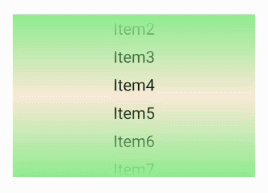一 概述
ListContainer用来呈现连续、多行数据的组件,包含一系列相同类型的列表项
- ListContainer的使用方法
- ListContainer的常用设置
- ListContainer的样式设置
二 ListContainer的使用方法
2.1 在layout目录下的xml文件中创建ListContainer
1
2
3
4
5
| <ListContainer
ohos:id="$+id:list_container"
ohos:height="200vp"
ohos:width="300vp"
ohos:layout_alignment="horizontal_center"/>
|
2.2 ListContainer的子布局(item_sample.xml)
1
2
3
4
5
6
7
8
9
10
11
12
13
14
15
16
17
| <?xml version="1.0" encoding="utf-8"?>
<DirectionalLayout
xmlns:ohos="http://schemas.huawei.com/res/ohos"
ohos:height="match_content"
ohos:width="match_parent"
ohos:left_margin="16vp"
ohos:right_margin="16vp"
ohos:orientation="vertical">
<Text
ohos:id="$+id:item_index"
ohos:height="match_content"
ohos:width="match_content"
ohos:padding="4vp"
ohos:text="Item0"
ohos:text_size="20fp"
ohos:layout_alignment="center"/>
</DirectionalLayout>
|
2.3 ListContainer的数据包装类(类似于Android bean类)
1
2
3
4
5
6
7
8
9
10
11
12
| public class SampleItem {
private String name;
public SampleItem(String name) {
this.name = name;
}
public String getName() {
return name;
}
public void setName(String name) {
this.name = name;
}
}
|
2.4 ListContainer数据适配类(类似于Android中adater类)
ListContainer常用方法
| 方法 |
作用 |
| int getCount() |
返回填充的表项个数 |
| Object getItem(int position) |
根据position返回对应的数据 |
| long getItemId(int position) |
返回某一项的id |
| Component getComponent(int position, Component covertComponent,ComponentContainer componentContainer) |
根据position返回对应的界面组件 |
SampleItemProvider
1
2
3
4
5
6
7
8
9
10
11
12
13
14
15
16
17
18
19
20
21
22
23
24
25
26
27
28
29
30
31
32
33
34
| import ohos.aafwk.ability.AbilitySlice;
import ohos.agp.components.*;
import java.util.List;
public class SampleItemProvider extends RecycleItemProvider {
private List<SampleItem> list;
private AbilitySlice slice;
public SampleItemProvider(List<SampleItem> list, AbilitySlice slice) {
this.list = list;
this.slice = slice;
}
@Override
public int getCount() {
return list.size();
}
@Override
public Object getItem(int position) {
return list.get(position);
}
@Override
public long getItemId(int position) {
return position;
}
@Override
public Component getComponent(int position, Component convertComponent, ComponentContainer componentContainer) {
Component cpt = convertComponent;
if (cpt == null) {
cpt = LayoutScatter.getInstance(slice).parse(ResourceTable.Layout_item_sample, null, false);
}
SampleItem sampleItem = list.get(position);
Text text = (Text) cpt.findComponentById(ResourceTable.Id_item_index);
text.setText(sampleItem.getName());
return cpt;
}
}
|
在Java代码中添加ListContainer的数据,并适配其数据结构
1
2
3
4
5
6
7
8
9
10
11
12
13
14
15
16
17
18
19
| @Override
public void onStart(Intent intent) {
super.onStart(intent);
super.setUIContent(ResourceTable.Layout_page_listcontainer)
initListContainer();
}
private void initListContainer() {
ListContainer listContainer = (ListContainer) findComponentById(ResourceTable.Id_list_container);
List<SampleItem> list = getData();
SampleItemProvider sampleItemProvider = new SampleItemProvider(list,this);
listContainer.setItemProvider(sampleItemProvider);
}
private ArrayList<SampleItem> getData() {
ArrayList<SampleItem> list = new ArrayList<>();
for (int i = 0; i <= 8; i++) {
list.add(new SampleItem("Item"+i));
}
return list;
}
|
ListContainer的界面显示效果
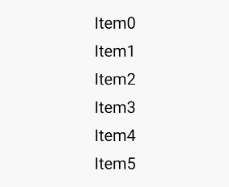
三 ListContainer的常用设置
3.1 设置响应点击事件
代码
1
2
3
4
5
6
7
8
9
10
11
| listContainer.setItemClickedListener(new ListContainer.ItemClickedListener() {
@Override
public void onItemClicked(ListContainer listContainer, Component component, int position, long id) {
SampleItem item = (SampleItem) listContainer.getItemProvider().getItem(position);
new ToastDialog(getContext())
.setText("clicked:"+item.getName())
// Toast显示在界面中间
.setAlignment(LayoutAlignment.CENTER)
.show();
}
});
|
响应点击事件效果
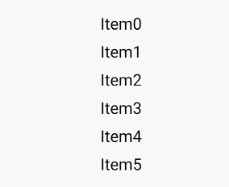
3.2 设置响应长按事件
代码
1
2
3
4
5
6
7
8
9
10
11
| listContainer.setItemLongClickedListener(new ListContainer.ItemLongClickedListener() {
@Override
public boolean onItemLongClicked(ListContainer listContainer, Component component,int position, long id) {
SampleItem item = (SampleItem) listContainer.getItemProvider().getItem(position);
new ToastDialog(getContext())
.setText("long clicked:" + item.getName())
.setAlignment(LayoutAlignment.CENTER)
.show();
return false;
}
});
|
响应长按事件效果
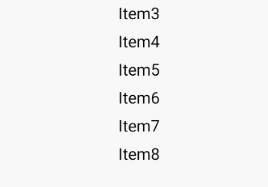
四 ListContainer的样式设置
ListContainer的样式设置相关的接口如下
| 属性 |
Java方法 |
作用 |
| orientation |
setOrientation(int orientation) |
设置布局方向 |
| - |
setContentStartOffSet(int startOffset)
setContentEndOffSet(int endOffset)
setContentOffSet(int startOffset, int endOffset) |
设置列表容器的开始和结束偏移量 |
| rebound_effect |
setReboundEffect(boolean enabled) |
设置是否启用回弹效果 |
| - |
etReboundEffectParams(int overscrollPercent, float overscrollRate, int remainVisiblePercent)
setReboundEffectParams(ListContainer.ReboundEffectParams reboundEffectParams) |
设置回弹效果参数 |
| shader_color |
setShaderColor(Color color) |
设置着色器颜色 |
4.1 设置ListContainer的布局方向
orientation设置为“horizontal”,表示横向布局;
orientation设置为“vertical”,表示纵向布局。
默认为纵向布局。
在xml中设置
1
2
3
| <ListContainer
...
ohos:orientation="horizontal"/>
|
Java代码中设置
1
| listContainer.setOrientation(Component.HORIZONTAL);
|
布局方向为horizontal的效果

4.2 设置ListContainer的开始和结束偏移量
java代码中设置
1
| listContainer.setContentOffSet(32,16);
|
为了便于观察,设置背景颜色
在item_sample.xml的
1
2
3
4
5
| <DirectionalLayout
...
ohos:background_element="#FAEBD7">
...
</DirectionalLayout>
|
ListContainer布局文件中添加背景色
1
2
3
| <ListContainer
...
ohos:background_element="#FFDEAD"/>
|
列表容器的开始偏移量为32,结束偏移量为16效果
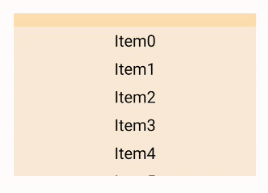
4.3 设置回弹效果
在xml中设置
1
2
3
| <ListContainer
...
ohos:rebound_effect="true"/>
|
在Java代码中设置
1
| listContainer.setReboundEffect(true);
|
回弹效果
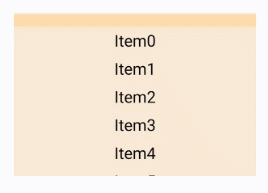
调整回弹效果
在开启回弹效果后,可以调用setReboundEffectParams()方法调整回弹效果。
1
| listContainer.setReboundEffectParams(40,0.6f,20);
|
4.4 设置着色器颜色
在xml中设置
1
2
3
| <ListContainer
...
ohos:shader_color="#90EE90"/>
|
Java代码中设置
1
| listContainer.setShaderColor(new Color(Color.getIntColor("#90EE90")));
|
设置着色器效果
